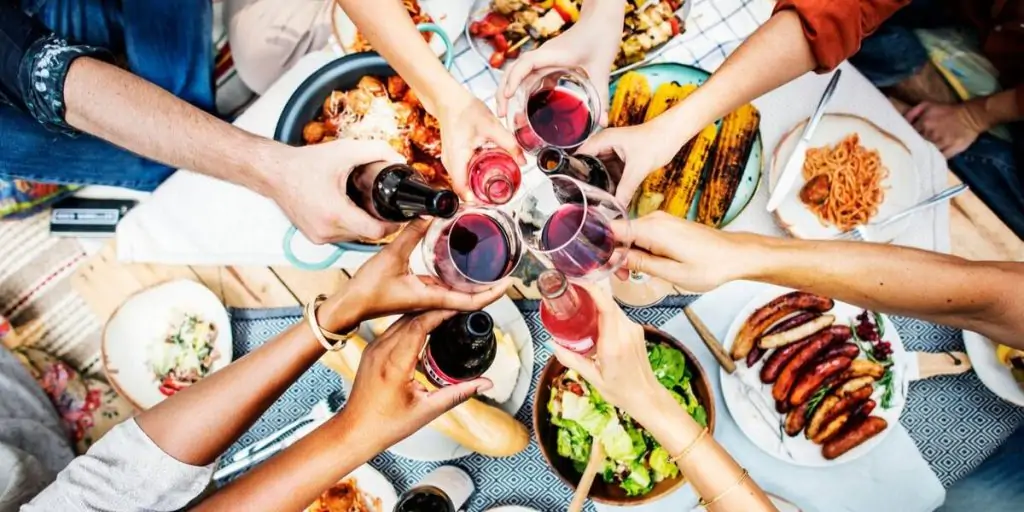For many, food and travel go hand in hand. There’s no better way to explore a new culture than through its food, and no there’s no nicer way to enjoy a holiday than with a delicious meal.
But one sure-fire way to ruin a trip is food poisoning. Unfortunately, when travelling in countries that have different foods and/or different hygiene practices to ours, this can be a common problem.
I’ve put together a few tips for avoiding food poisoning on holiday, as well as some advice about what to do if you do experience a problem.
Water
In many destinations, especially developing countries, tap water isn’t safe to drink.
If you’re not sure, stick to bottled water, and avoid ice that might have been made from the tap. Depending on the severity of the risk, you may also want to avoid buying salads or peeled fruit that could have been washed in contaminated water.
Pro tip: Invest in a filter bottle. These are scientifically proven to filter out disease-carrying bacteria and other contamination from water.
Avoid uncooked foods
Hot temperatures kill bacteria in food that cause digestive illnesses, while cool or lukewarm temperatures support the growth of germs.
Try to avoid foods that are raw, or might not have been cooked fully. Look for steaming hot food, to ensure the dish is fresh and bacteria free. If you do eat anything raw, stick to foods you can peel or shell yourself.
Be wary of dairy
Dairy products tend to go off easily, and because dairy has live bacteria in it this can be a common cause of food poisoning. Check how dairy goods are stored and how reliable the refrigeration is.
If you’re in an area where power outages are common, it may be wise to avoid foods that have been frozen or refrigerated, such as ice cream or yoghurt.
Check the consistency and shape of the food. If ice cream looks like it has melted and refrozen, it may not be safe to eat. If in doubt, give it a sniff! Dairy products may smell or taste sour if they’re off.
Be careful of meat
Meat is another food product that can cause issues if it’s not stored or prepared properly. Look at how the meat is being stored – especially if you’re eating street food. Is it covered and being kept cool?
To check meat is cooked properly, take a look at the inside. If it looks pink or raw (and shouldn’t be), avoid it. Meat should be hot throughout, not cool or lukewarm.
Stick to popular street food
Street food is common in many countries, and it can be delicious! But anything being prepared outside of a kitchen can be a bit of a risk. One tip is to look at how busy the vendor is. A busy stall doesn’t just mean good food; it also suggests that the food is being turned over quickly, so ingredients won’t have been sitting out for long.
Follow the locals
If you’re not sure where to eat, eat where the locals eat. After all, they’ll know the best places to visit – if somewhere has bad food hygiene it won’t get much repeat business from locals. This is also a fun way to explore the local culture and to try the locals’ favourite dishes!
Check reviews
Another great tip for choosing where to eat to avoid food poisoning while travelling, is to check out reviews online. If a place has consistently good reviews on a site like TripAdvisor, chances are they’re doing something right.
Wash YOUR hands
Of course, you want any kitchen preparing food for you to practice good food hygiene. But the buck doesn’t stop with them! If you’ve been out and about exploring, you may well have some bacteria on your own hands. Wash your hands regularly, especially before eating, and carry hand sanitiser with you.
What to do if you do get Food Poisoning
According to the NHS, the symptoms of food poisoning to watch out for are:
- feeling sick (nausea)
- diarrhoea
- being sick (vomiting)
- stomach cramps
- a high temperature of 38°C or above
- feeling generally unwell – such as feeling tired or having aches and chills.
If you’re unwell and feel you need medical treatment, call your travel insurance provider and they’ll be able to advise you on where your nearest medical facility is and what to do next.
Rest up and drink
Stay in your hotel and get plenty of rest, and drink lots of fluids. If you feel sick, stick to small sips, but make sure you stay hydrated. Avoid fruit juices and fizzy drinks, though, as these can make your tummy worse.
Stick to bland foods and avoid dairy. Things like bread, crackers, and rice might be better for an upset stomach.
Re-hydrate
Dehydration is common if you’re suffering from diarrhoea or vomiting, so it’s a good idea to use oral rehydration sachets. Pop a couple in your travel first aid kit so you always have some handy when travelling.
Stopping diarrhoea to travel
If you need to stop the diarrhoea for a few hours, for instance to travel home, a medicine like loperamide could help. It won’t stop the illness, but it will enable you to travel by ‘blocking you up.’
Diarrhoea is your body’s way of flushing out the bacteria that’s poisoning you, so unfortunately the only way to get over the illness is to get through it.
Check with a doctor
If you’re unsure about anything, turn to trusted sources like the NHS for further information, or speak to a doctor.
You can also call the NHS on 111 for free from the UK to seek advice, or you can try using 111 Online from abroad.


